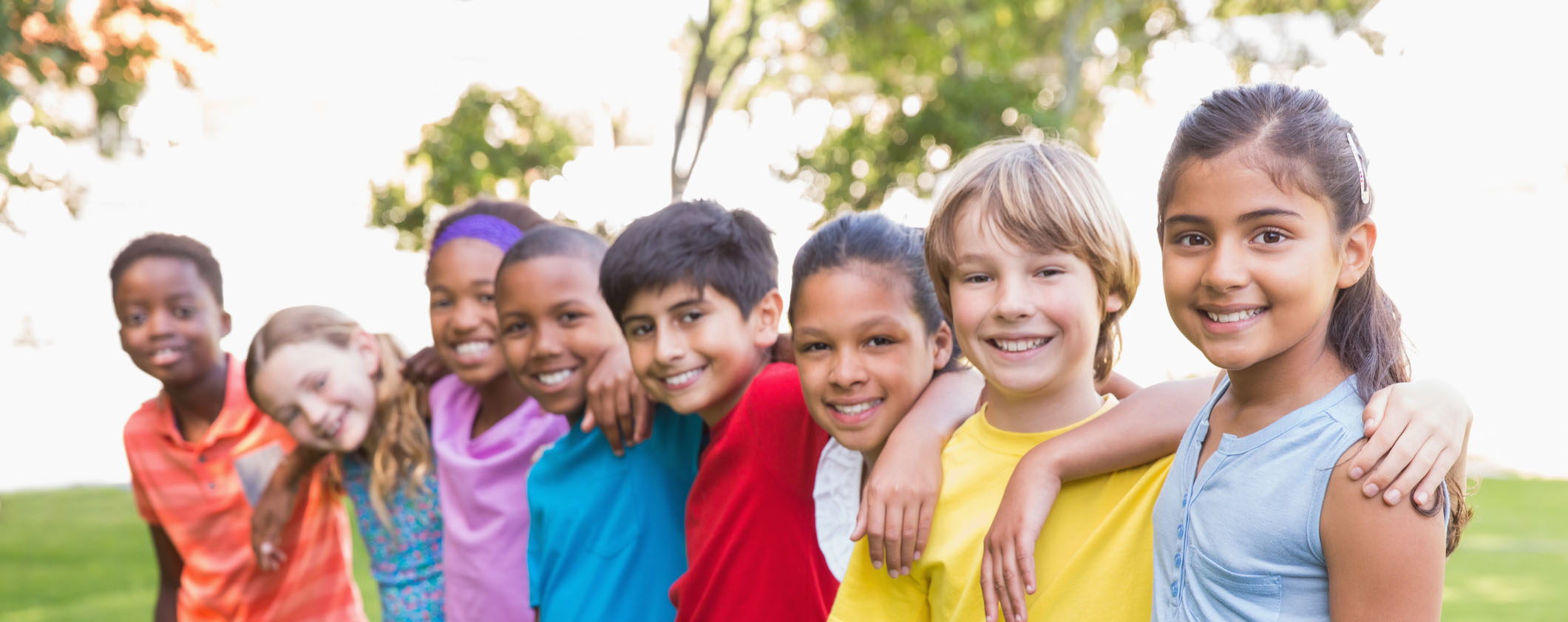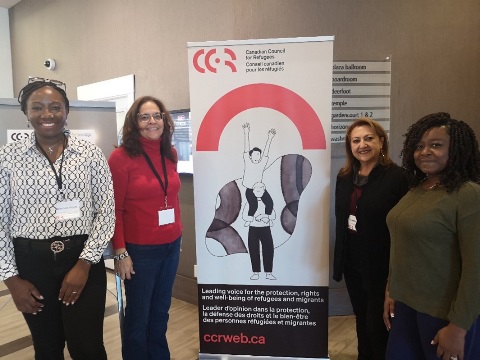
The Canadian Council for Refugees Fall Consultation
A delegation of Immigration Specialists from the Child Welfare Immigration Centre of Excellence (CWICE) attended the Annual Canadian Council for Refugees (CCR) Fall Consultation in Calgary and the Anti Human Trafficking Forum, November 15 – 18, 2023. The consultation focused on the theme The Power of the Collective: Decolonizing and Advocating for Systemic Change.
The annual CCR consultation brings together non-governmental organization (NGO) representatives, government representatives, and human rights advocates from all over Canada and abroad. This conference provides the opportunity to discuss trends and issues related to immigration, settlement, inland protection and overseas resettlement. Immigration Specialist Claudia Obreque pointed out, “In our experience, we know these focused areas are all connected with the intersection of child welfare and immigration, settlement and border-related issues.”
The CWICE delegation included Abimbola Fajobi, Claudia Obreque, Rosario Elmy and Yvonne Dewornu-Keys. Claudia noted the importance of being in attendance, “As Immigration Specialists, this conference provided an opportunity to highlight the direct service work, advocacy and promising best practices we have been infusing in the child welfare sector for nearly six years.” The delegation has shared their thoughts, reflections, and key take-aways from this experience.
NGO and government representatives, as well as human rights advocates from all over Canada and abroad were grouped under one umbrella to review what has been done, what is being done, and what the future holds for settlement and the rights of refugees and migrants in Canada and globally. Attendees were divided into different sessions for Working Group Meetings. There were sessions solely for NGO representatives, human rights advocates, and community stakeholders, while government and media were strongly encouraged to attend specific working groups. Other workshops were open to everyone at the conference to collaborate and analyze immigration and refugee policies that were being developed.
Yvonne Dewornu-Keys found that the division of the sessions created a safe space and enabled individuals to brainstorm, or even critique some issues. Discussion topics included the inadequate support refugee claimants receive related to shelter, access to legal aid, social assistance, employment and so on upon arrival to Canada. One session entitled “More than a roof over their head” highlighted the importance of providing refugee claimants shelter and wraparound supports. The session encouraged engagement from all community stakeholders when refugee claimants land at our Canadian borders, including allocating government funds to ensure all claimants have access to shelter upon arrival. During the session, most attendees agreed that support services are vital for refugee claimants to develop successful independent lives while their claim is in process. Yvonne shared, “I walked out of the conference knowing that although there are a lot of challenges within the refugee and settlement sector which might not be resolved within a day, there should be continues engagement and collective advocacy which are powerful tools for effective change within the immigration sector.”
Rosario Elmy attended the Immigration and Settlement workshop, which highlighted the challenges refugees encounter when entering Canada. The barriers discussed included housing and family reunification, as well as specific challenges faced by international students and migrant workers through regularization. Rosario noted that “the workshop also addressed the conflicts people are facing around the world. A major contributor are multiple disjointed systems that people are forced to navigate, usually unassisted.”
Abimbola Fajobi was excited to attend this gathering for the first time. Sessions she attended focused on advocacy to ensure polices are reviewed and modified to promote equality and equity. She said, “Advocacy within our local and federal agencies ultimately ensures families are supported and this also creates avenues for consistent capacity building within policy development and service.” Abimbola highlighted the importance of centering lived experiences, as every family has a different story to tell. She reflected that capacity building is critical and must include learning, unlearning and re-learning strategies to support children, youth, and families from various cultural, political, racial and socio-economic backgrounds.
Our delegation firmly believes conferences and consultations allow issues to be addressed through collaboration, compassion, and informed actions. Attending these consultations is a necessity for CWICE, as we continue to provide best-in-class services using the most current information.
We thank Peel Children's Aid Foundation and donors for support in funding CWICE Immigration Specialists to participate in this national forum. We are grateful for the opportunity to represent the child welfare sector, share our expertise, and bring knowledge back to the Centre of Excellence, as we know many of the issues and trends discussed will impact our clients.

Photo (L to R): CWICE Immigration Specialists Abimbola Fajobi, Rosario Elmy, Claudia Obreque and Yvonne Dewornu-Keys at the CCR Consultation
